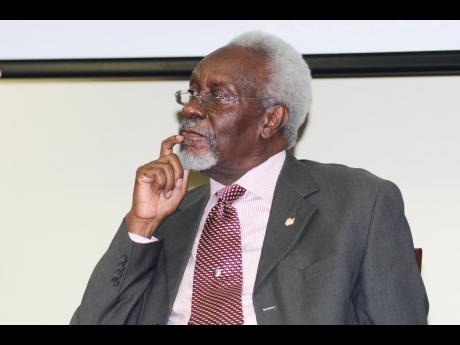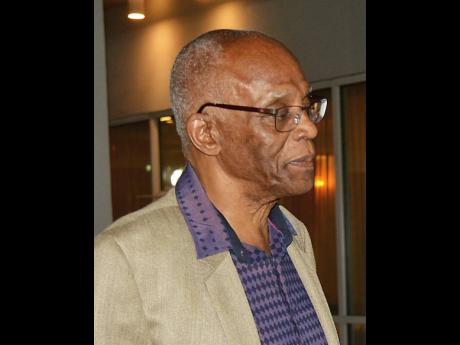P.J. Patterson & Hugh Small | Continuing criminal case against Vybz Kartel was a fatal error
The following is a joint statement from former Prime Minister P.J. Patterson, King’s Counsel (KC), and Hugh Small, KC, in relation to the recent Privy Council ruling on the Vybz Kartel appeal.
The judgment of the Privy Council in the case, popularly called the Vybz Kartel appeal, has attracted attention because the Privy Council ruled that the Jamaican judges at the appellate stages should have discharged all the jurors from continuing to try the accused persons.
Neither the trial judge, Justice Lennox Campbell, nor the three judges who heard the appeal from the ruling and verdict were apparently aware that there was a judgment of the Court of Appeal of Jamaica in 1983 that ruled in similar circumstances, that the duty of the court was to discharge the entire jury and order a new trial.
The case was The Gleaner Company Limited and John Hearne v Michael Manley in which we both appeared as Counsel for the plaintiff, Manley.
At the trial, Justice UD Gordon, after three weeks of evidence, discharged the foreman as a special juror that was hearing evidence in a libel case in which Manley claimed damages for an article, written by John Hearne and published by The Gleaner.
During the hearing of evidence for Manley, The Gleaner produced evidence that the foreman of the jury was employed to the National Workers Union during a period of time when Manley held the executive position of island supervisor of the NWU.
Justice Gordon discharged the foreman of the jury on the grounds of apparent bias but refused to discharge the entire jury and decided to continue with the 6 special jurors who remained. The Gleaner and John Hearne appealed against Justice Gordon’s refusal to discharge all the members of the jury.
The Court of Appeal of Jamaica, consisting of Justices Edward Zacca, Ira Rowe, and R.O.C. White decided by a majority, that the entire jury must be discharged, and a new trial take place. The case report is Supreme Court Civil Appeal No. 4 of 1983.
In his judgment, the president of the Court of Appeal, Justice Edward Zacca, stated: “Nothing should be done which creates even a suspicion that there has been an improper interference with the course of justice.”The learned trial judge’s finding of the foreman’s “known admiration and contact with the plaintiff,” taken, together with the period of time during which jurors had been sitting together; the fact that the trial judge ought not to make enquiries from the other jurors as to what had taken place in the jury-box and the nature of the case, warranted a discharge of the entire jury. One cannot tell to what extent the bias of the foreman may have influenced the remaining jurors.”
It is regrettable that this case was not brought to the attention of Justice Campbell, the judges of the Jamaica Court of Appeal, Dennis Morrison, Partick Brooks, and Franklyn Williams, or cited in the Privy Council.
It is worthy of note, unlike the situation in the Vybz Kartel case, there was no finding of actual misconduct by the foreman in that civil case. To have continued the criminal case against Vybz Kartel et al, notwithstanding 64 days of trial, was not merely a risk, but a fatal error to render any final verdict unacceptable in accordance with the tenets of justice and the decision of our own Court of Appeal in 1983.


